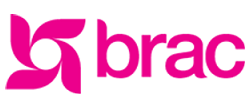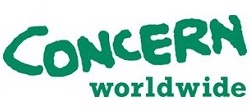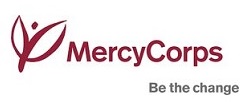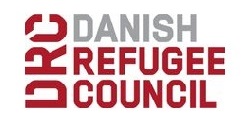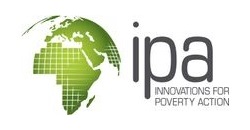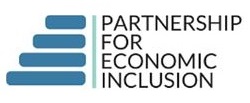The Poverty Alleviation Coalition
The Poverty Alleviation Coalition

The Poverty Alleviation Coalition (PAC) – an alliance of the World Bank’s Partnership for Economic Inclusion, UNHCR, and 13 International Non-Governmental Organizations – was launched in July 2019 with an ambitious target to implement a poverty alleviation programme for 500,000 refugee and host community households by the end of 2025.
A partnership of both humanitarian and development organisations, the PAC’s work relates to the Global Compact on Refugees’ (GCR) objectives of promoting self-reliance and easing pressure on host communities, and to 2030 Sustainable Development Goals 1 (no poverty), 8 (decent work and economic growth), and 10 (reduced inequalities).
By working together, the members of the alliance are able to combine actors with different backgrounds – technical support, on-ground presence, and ability to mobilize political will and financial support – and plan projects harmoniously, ensuring the programme has the greatest possible impact.
At the Global Refugee Forum (GRF) in December 2019, the PAC pledged to help a minimum of 160,000 households by the next GRF in 2023. The participants are based in 35 countries across the world, in areas where refugees and host communities live in poverty and in close proximity to one another. Many of the projects target the most vulnerable refugees and members of host communities, namely, female-headed households and households with disabled, young, or elderly members. By improving access to livelihood opportunities and enabling refugee self-reliance, the projects ease pressures on host communities and promote greater integration and social cohesion.
The Graduation Approach
The PAC aims to help refugee and host community households by using ‘The Graduation Approach’, a programme created by BRAC, which has proven to alleviate extreme poverty.
For a period of 18 to 36 months, participants receive step-by-step financial and professional support. With mentoring and financial support to cover basic costs from the outset, the programme then introduces access to social, financial, and legal services and, later, seed capital, assets, or employment. Participants can, for example, receive training and assistance with setting up a bank account. Covering basic living costs ensures that participants can keep their existing or future assets and concentrate on the programme.
Families who have participated in the programme have experienced decreased levels of child malnutrition, greater levels of food security, better integration, and high levels of self-reliance.
Results from BRAC’s programmes found 95 per cent of participants graduated out of extreme poverty, while an analysis by the Consultative Group to Assist the Poor (CGAP) found that with an average cost of USD 1,400 per household, the Graduation Approach is highly cost effective.
Poverty alleviation at scale
The PAC is expanding the Graduation Approach, aiming to reach as many households as possible. So far, one out of five households is covered with the available funding, and implementation has already begun in a number of countries.
Bangladesh
Cox’s Bazar is one of Bangladesh’s poorest districts, with 33 per cent of the population living below the poverty line, and 17 per cent living in extreme poverty. The PAC’s project in Bangladesh is being implemented by BRAC, Concern Worldwide, and World Vision International, with Innovations for Poverty Action (IPA) as a research partner, and aims to help 86,000 households by 2025.
Among current projects operating in Cox’s Bazar, World Vision is running one entitled ‘Gender-Inclusive Pathways Out of Poverty’, which includes approaches promoting gender equality and child protection awareness, as well as addressing the substantial climate challenges faced in the region. Targeting 15,871 people, the programme is being funded by the Australian Department of Foreign Affairs and Trade. To date, USD 3,000,000 (3%) of the funding needed for the programmes in Bangladesh has been secured.
Ecuador
In Ecuador, more than 24 per cent of the population lives in extreme poverty, and the country has the largest number of recognized refugees in South America. A drop in the price of crude oil, coupled with the COVID-19 pandemic, has led to a drop in Gross Domestic Product. HIAS, in collaboration with the Ministry of Economic and Social Inclusion (MIES) and Trickle Up, is running an 18-month programme targeting 6,000 households, of which 70 per cent will be female-headed. The partnership with MIES combines elements of the Graduation Approach with welfare social services, ensuring participants have equal access to protection services, fostering integration. So far, USD 4,741,000 (38%) of the funding needed for the programmes in Ecuador has been raised.
Rwanda
In Rwanda, structural issues make it complex for refugees to become self-reliant, with 91 per cent living in camps. At the same time, 91 per cent of Rwandans work in informal employment, with over half of the working age population working in subsistence agriculture. The PAC plans to target 8,340 households in Rwanda for a 36-month programme, with half of participants from the refugee population, and the other half from the host community.
As part of the coalition, Caritas Rwanda has formed a partnership with Trócaire, the official overseas development agency of the Catholic Church in Ireland. Trócaire will assist in areas such as grant management, organisational development and sustainability, and technical support to Caritas which is leading the project. To date, USD 5,500,000 (63%) of the funding required for the projects in Rwanda has been raised.
Matching the Pledge
A total of USD 224 million is needed to reach the target of assisting 160,000 households by 2023. The PAC is seeking contributions to reach this goal. Using a parallel funding model, donations go directly to the NGOs implementing the programme, while UNHCR assists with fundraising efforts and oversight. This modality ensures the quick and cost-effective allocation of funds.
The PAC is seeking support from donor pledging entities to fund the programme. Information on the number of households and status of funding per country can be found on the PAC’s website.
In preparation for the High-Level Officials Meeting in December, pledging entities are encouraged to get involved in pledge matching, whereby pledges – whether pre-existing or new – from donor entities, that are financial or material in nature, are matched with those of host entities in need of such resources to take forward their commitments towards protection and inclusion.
Anyone looking to match a pledge, such as funding part of the PAC’s programme, can get in touch with the Global Compact on Refugees Coordination Team at [email protected]
To find out more about the Poverty Alleviation Coalition, visit their website and subscribe to their newsletter.
Partners |
Implementing & technical |
|
|
|
|
|
|
|
|
|
|
|
|
|
|
|
|
|
|
|
|
|
|
|
|
|
|
Research |
|
|
|
|
Convening members |
|
|
|
|




